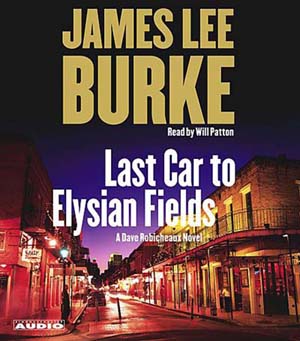
One of my favorites [bars] of years past was Goldie Bierbaum’s place on Magazine in New Orleans. A green colonanade extended over the sidewalk, and the rusted screen doors still had painted on them the vague images and lettering of Depression-era coffee and bread advertisements. The lighting was bad, the wood floor scrubbed colorless with bleach, the railed bar interspersed with jars of pickles and hard-boiled eggs above and cuspidors down below.
“You want to know who’s running New Orleans? Flip over a rock. Welfare pukes hustling bazooka and blacks and South American spics and bikers muleing brown skag out of Florida. Nothing against the blacks or the spics. They’re making it just like we did.” [spoken by an Italian-American organized crime guy]
New Orleans wasn’t a city. It was an outdoor asylum located on top of a giant sponge.
Three excerpts from James Lee Burke’s 2003 “Last Car to Elysian Fields” (pages 2, 22-23, 85 respectively)…. The tale is set in 2002.

Fiction often presents a better window on our culture than the newspaper articles, sociological studies, and documentaries that purport to note the truth about our sociopolitical world.
I’m about half-way through “Last Car”, so I might revise this, but my favorite James Lee Burke novel is “Jolie Blon’s Bounce”, drawing its title from a famous New Orleans song. However, you won’t go wrong with any James Lee Burke title.
His most common protagonist is Dave Robicheaux, who has an adopted daughter named Alastair, who by the time of “Last Car” is off at college in Portland. Burke has a daughter named Alastair, it turns out. I found her when I found at title by one Alastair Burke on the shelf next to James’ books, a fine mystery, too.